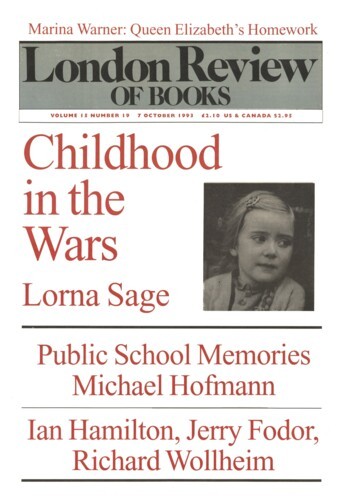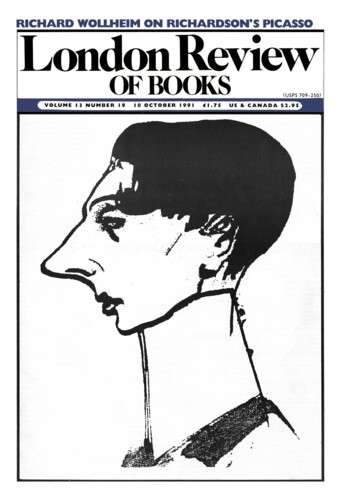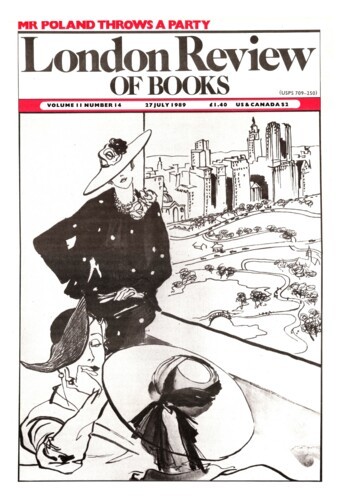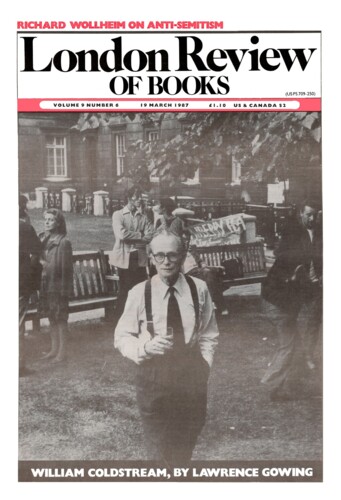Fifty Years On
Richard Wollheim, 23 June 1994
One snowy night in the early months of 1945, we were dining in the basement of a bombed-out house in one of those neat workers’suburbs of which the Dutch were proud. ‘We’ were the ten or so officers on the Head-quarters of 214 Infantry Brigade. For protection against the fierce cold, we had an anthracite stove, which smoked, and large tumblers of Dutch gin. We had been out of the line for an unprecedented ten days, and the Brigadier was in a more relaxed mood than we had seen since the last days of training in Kent the previous summer. He said that we must promise him something. We had been through a lot together. ‘My word,’ he said, and he chuckled. When the war was over, we might start to think of these as great days of our lives. ‘I want you never to forget that war is the filthiest, the most disgusting, thing man has invented.’





